Top Russia negotiator rejects Saudi media claim, says no date set for next Vienna talks
The Russian ambassador to international organizations in Vienna has roundly rejected a recent claim by Saudi media outlets about early September having been set as the date for the new round of talks to revive Iran’s nuclear deal with world powers, saying no such date has been fixed so far.
Mikhail Ulyanov’s remarks came in a Monday tweet after Saudi newspaper Arab News quoting Saudi Arabia’s al-Arabiya news channel, claimed in an earlier tweet the same day that “the Vienna nuclear negotiations are suspended until early September.”
In response, Ulyanov said, “Of course the new government of #Iran needs some time to get prepared for resumption of the #ViennaTalks. How long? Nobody knows.”
Interesting, but not necessarily reliable information. Of course the new government of #Iran needs some time to get prepared for resumption of the #ViennaTalks. How long? Nobody knows. We need to wait for an official announcement from #Tehran. The sooner it happens, the better. https://t.co/aEpFQdEkqe
— Mikhail Ulyanov (@Amb_Ulyanov) July 19, 2021
The Russian diplomat added that all parties should wait “for an official announcement from Tehran,” adding that the sooner the talks on the revival of the Joint Comprehensive Plan of Action (JCPOA) are resumed in the Austrian capital, the better.
The JCPOA was reached between Iran and six world powers, including the United States, Britain, France, Germany, Russia and China.
The deal was ditched by former US President Donald Trump in 2018 in spite of Iran’s full compliance with its contractual obligations.
Washington then began to put enormous pressure on Iran through sanctions, in what it called a “maximum pressure” policy, in order to force Tehran to negotiate a “better deal.”
Now President Joe Biden, who was the vice president of the United States when the deal was inked, has promised to re-enter the JCPOA and abandon Trump’s “failed” maximum pressure campaign.
The Vienna talks began in early April with the aim of reviving the JCPOA by bringing all original parties, especially the US, back into compliance with the deal, three years after Washington withdrew from the accord and tried to sabotage it.
So far, six rounds of negotiations have been held in the Austrian capital, as a result of which, according to participants, “significant progress” has been made in the course of the “constructive” and “businesslike” talks.
However, disagreements have persisted over a number of issues, including how to sequence the US sanctions removal, with Tehran arguing that since Washington was the party that violated the terms of the agreement, it should take the first step back into compliance with the deal by removing its unilateral sanctions.
Tehran has also asked for guarantees that the US won’t again leave the JCPOA under a new administration. This comes as the other hand, Biden's administration says it cannot give such guarantees.
Iran is also dissatisfied with the scope of sanctions that the US is willing to remove, saying the US sanctions removal must cover all the sanctions that were slapped on the Islamic Republic after the JCPOA went into force in January 2016.
The US, for its part, has asked for follow-on talks about other issues, such as Iran’s missile program, which Tehran has strongly rejected.
Iran’s senior nuclear negotiator said on July 17 that the underway talks in Vienna have to allow time space for the pending democratic transition in Tehran to take its own course.
“We're in a transition period as a democratic transfer of power is underway in our capital. Vienna talks must thus obviously await our new administration. This is what every democracy demands,” Abbas Araqchi, a deputy Iranian foreign minister, who leads the country’s delegation to the talks, said.
How Iranian missiles and drones evaded Israel’s much-hyped air defenses
70,000 pro-Palestine people in UK urge London to end arms exports to Israel
VIDEO | Gaza, Hezbollah, and decline of Zionism
Iran Greco-Roman wrestlers win Asian championship
Gaza authorities slam Israel for torturing Palestinian children
Putin: Iran’s retaliatory attack on Israel best way to punish aggressor
Erdogan: Israel to blame for tensions in West Asia
VIDEO | Iran’s ‘True Promise’


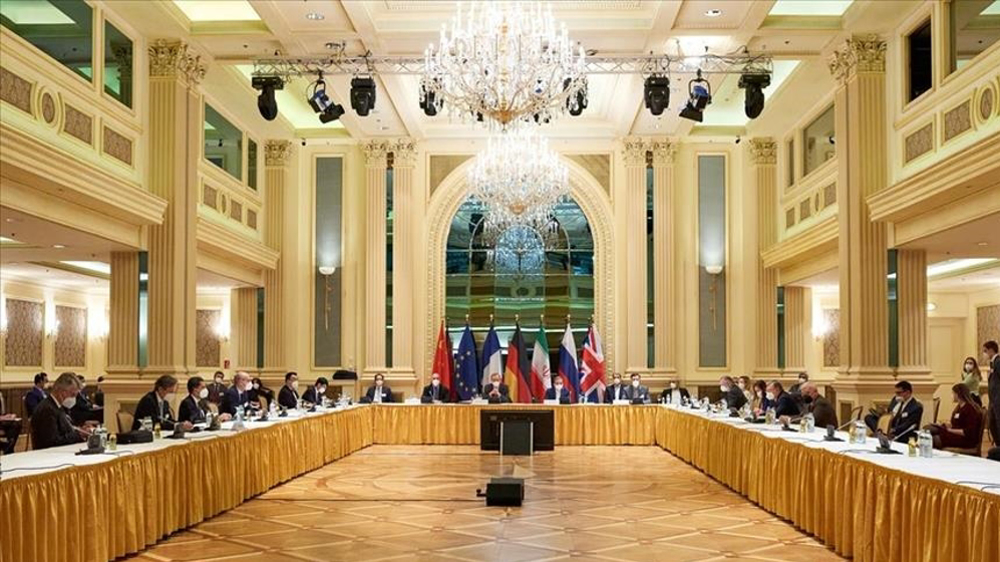
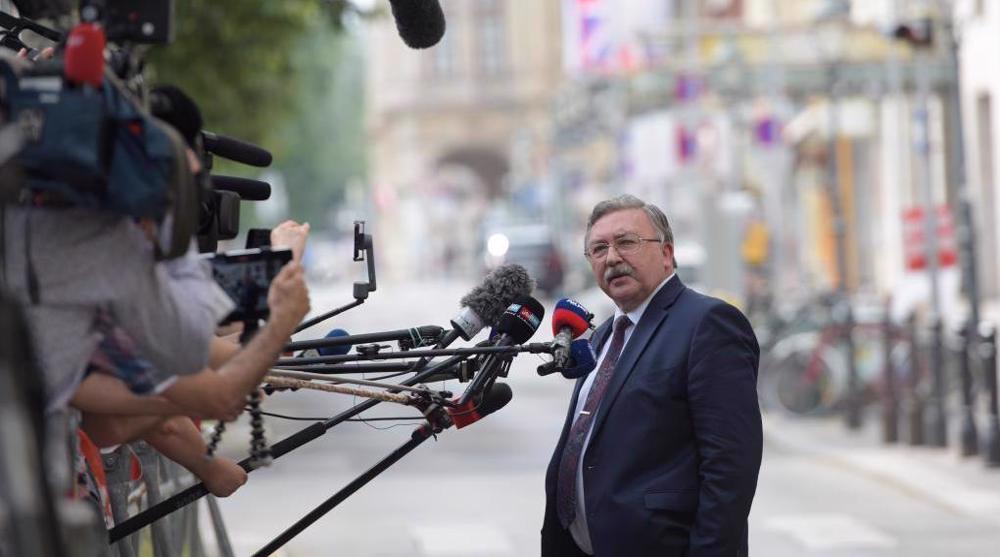
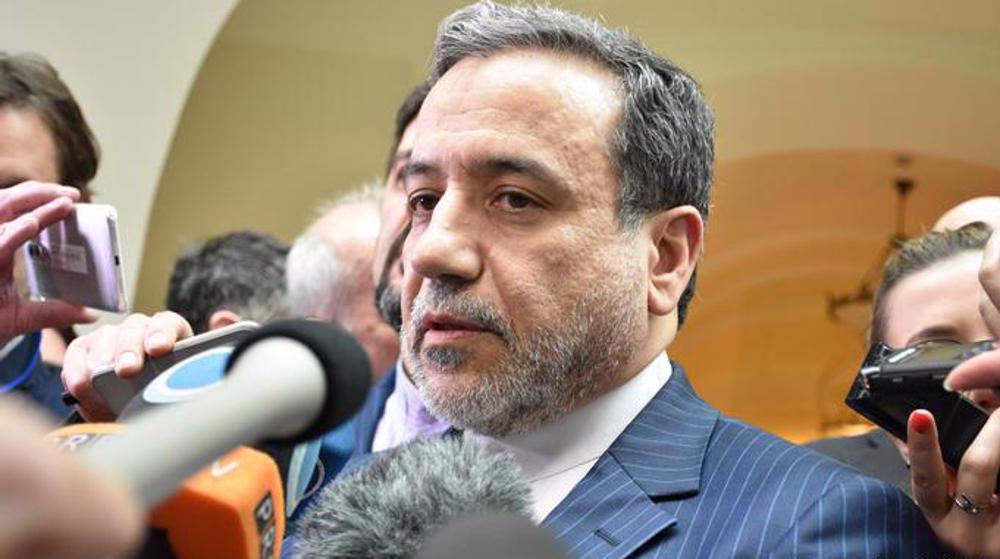
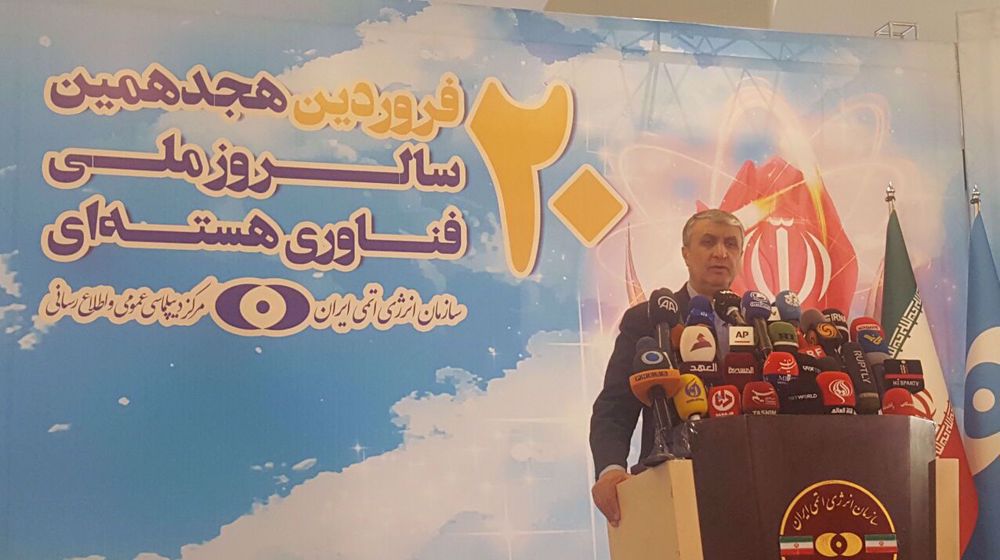
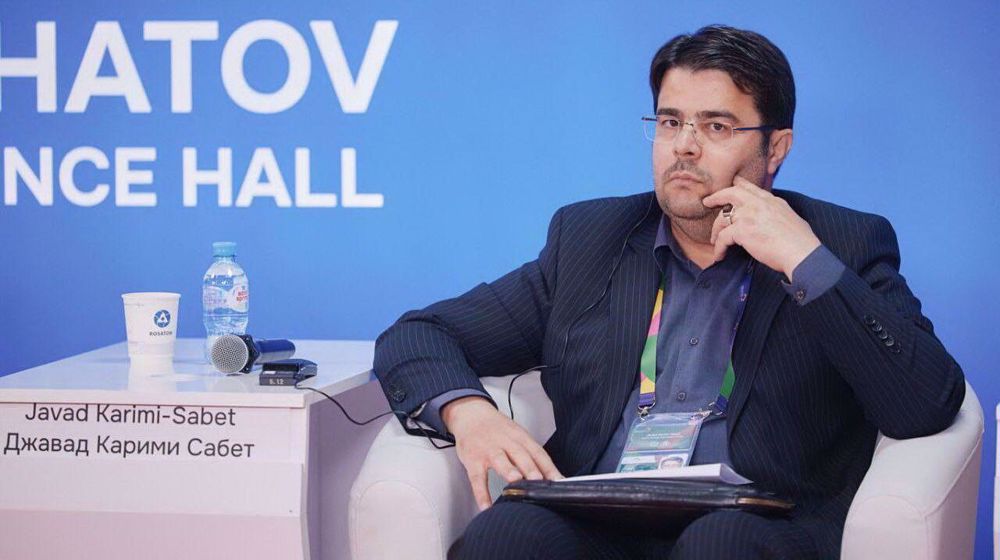
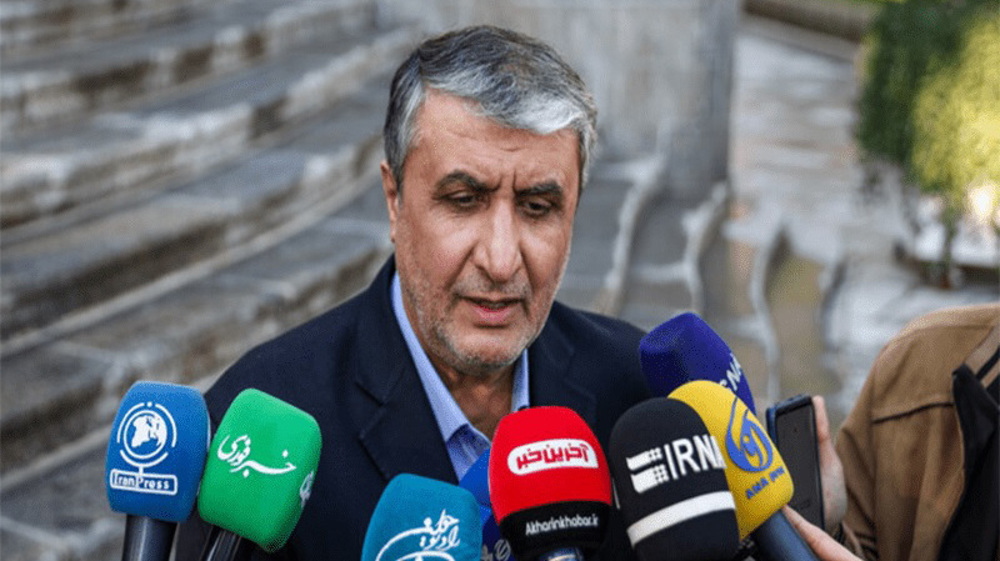




 This makes it easy to access the Press TV website
This makes it easy to access the Press TV website